THINK ABOUT TOMORROW.
JOIN IN CLIMATE PROTECTION!
In the recycling bin we collect plastics, metals and all used packaging, except for paper, cardboard and glass.
Only if the recyclable waste is collected free of contaminants can material cycles be closed and thus climate-damaging effects reduced. With your help, more than 20,000 tonnes of climate-damaging gases are avoided every year through the recycling bin.
Recyclables must not be contaminated with residual waste, because then everything can only be incinerated. Materials such as residual and organic waste, paper and cardboard, glass, and batteries therefore do not belong in the recycling bin.
WHAT GOES IN YOUR BIN?
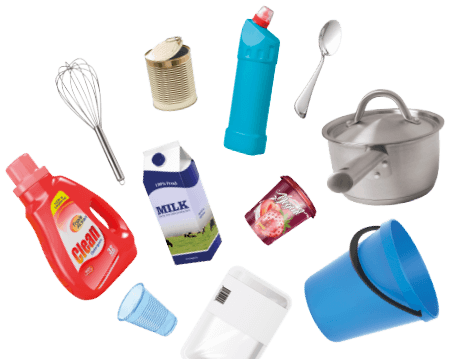
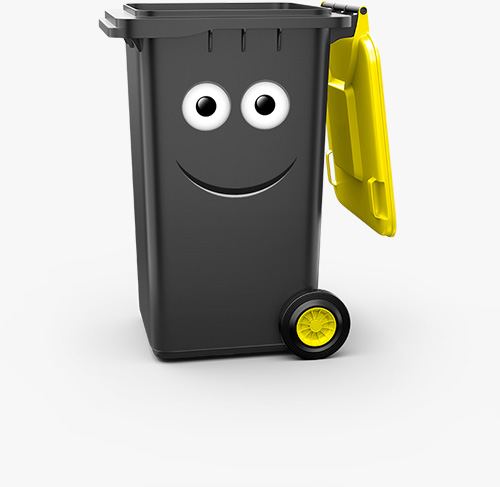
- Yoghurt pots
- Plastic bottles
- Tubes
- Household foils
- Tins
- Beverage cartons
- Plastic tableware
- Cutlery
- Pots/pans
- Watering cans
- Children’s toys (made of plastic/metal)
WHAT CAN’T GO IN THE BIN?
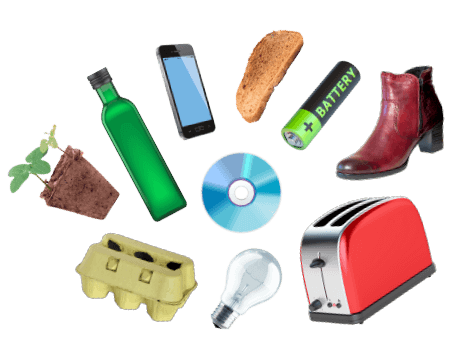
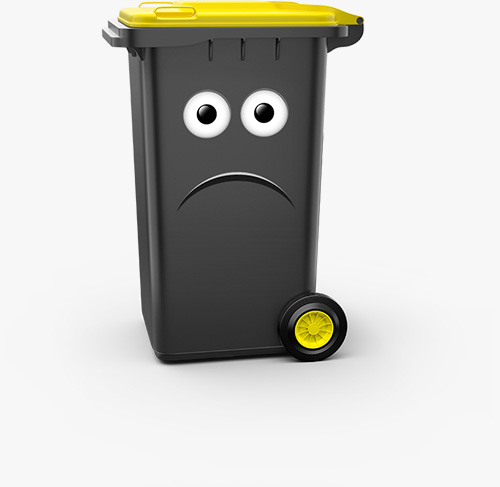
- Batteries
- Electrical appliances
- CDs/DVDs
- Paper and cardboard
- Glass
- Textiles and shoes
- Renovation waste
- Wood
- Carpet
- Residual waste
- Organic waste
IMPORTANT
From 2021, it will be prohibited to dispose of electrical appliances and CDs via the recycling bin. Take advantage of the opportunities to return appliances free of charge to specialist retailers or recycling centres. CDs can also be handed in free of charge at recycling centres. You can find an overview of the locations here.
FULL BIN?
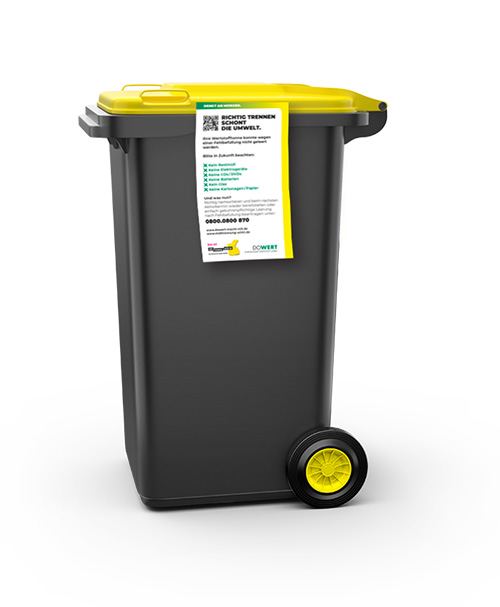
My bin was not emptied, what do I have to do?
Check whether your bin has been marked with the note “incorrect filling”. Either remove all waste that does not belong in the recycling bin (see above) and put the bin out again for emptying on the next date, or order a chargeable emptying by e-mail or fax after incorrect filling (please always sign and state the billing address).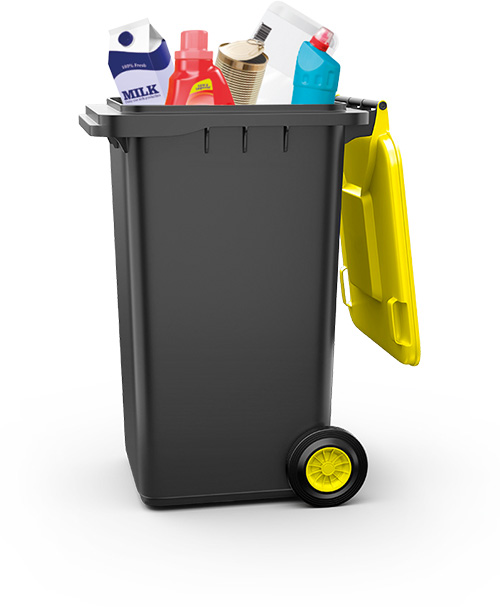
What do I do if my bin is full before the next emptying date?
You are welcome to order further emptyings. These will then be subject to a charge. Alternatively, you can also hand in excess quantities at the recycling centres. You can find an overview of the locations here.
We will also be happy to help you on the free hotline: